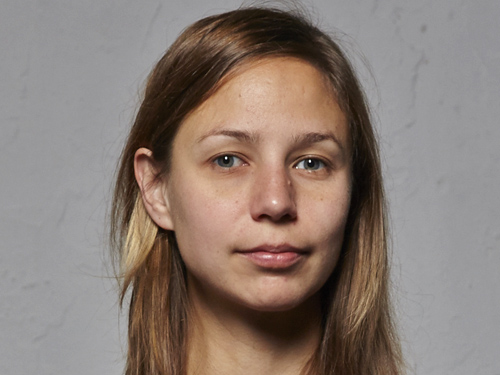Kate Moore has taken out the Matthijs Vermeulen Award while Lachlan Skipworth has won New England Philharmonic’s Call for Scores.
Dutch-Australian composer Kate Moore has been announced as the winner of the Dutch Matthijs Vermeulen Award for her composition The Dam. The work, originally for alto sax, didjeridu, percussion, baritone (or bass) electric guitar, Fender Rhodes piano, soprano, chamber organ, and baroque string quartet, premiered at the 2015 Canberra International Music Festival, but has since been arranged for new instrumentation. The new arrangement was premiered by UK new music ensemble Icebreaker.
 Kate Moore. Photo © Johan Nieuwenhuize
Kate Moore. Photo © Johan Nieuwenhuize
“The Dam is based on the rhythms of the sounds made by cicadas, crickets, frogs, birds, flies, spiders and other creatures that inhabit a waterhole in the bush,” Moore wrote in her programme note for the work. “Far away from human intervention, their evening song becomes a great choir joyously singing out into the vast universe. It is possible from far away to hear where the waterhole is without being able to see it and it is also possible to hear the shape of the landscape around it as many tiny creatures create a sonic pointillistic landscape. I am attracted to the almost but not quite polyrhythmic tapestry of sound they create.”
The Matthijs Vermeulen Award – named after the 19th-century Dutch composer – is the most important award in Dutch music composition and has been won in the past by composers such as Michel van der Aa, Jan Boerman and Louis Andriessen. Moore, who is the first female recipient of the award, will be presented with the 20,000 Euro prize in The Hague in December.
Moore isn’t the only Australian composer to meet with success overseas this month. Australian composer Lachlan Skipworth’s Spiritus has been announced as the winner of the 2017 New England Philharmonic’s Call for Scores, a competition that “showcases a contemporary classical music composition by an emerging composer”. Skipworth’s work was selected from 104 entries from 17 countries.
The New England Philharmonic, a Boston-based volunteer orchestra with the mission “to cultivate the composition of classical music by performing new works alongside traditional repertoire in concerts that engage and electrify audiences” has been inviting composers from around the world to participate in its annual Call for Scores since 1985.
 Lachlan Skipworth. Photo © Nik Babic
Lachlan Skipworth. Photo © Nik Babic
Spiritus will be performed by the New England Philharmonic under the baton of its Music Director Richard Pittman on March 3, 2018, as part of a concert titled Ancient, Modern and Bernstein.
“By presenting these new works in the context of pieces by established composers— including classics of the symphonic repertory—the New England Philharmonic demonstrates that orchestral music is not a finished collection of museum pieces, but a living, evolving tradition,” the NEP’s website says.
Past winners of the Call for Scores competition include Liliya Ugay’s Oblivion (2016), Spectre of the Spheres by David Hertzberg (2015) and How the Solar System Was Won by Matthew Browne (2014).
Initially trained as a clarinettist, Skipworth – who studied with Anne Boyd and whose music is influenced by his studies of the Japanese shakuhachi – has composed numerous works for orchestra, chamber orchestra and voice. In 2014 he was awarded the Paul Lowin prize for orchestral composition for his Concerto for Clarinet and Orchestra, which was premiered by Ashley William Smith and the West Australian Symphony Orchestra (WASO), and went on to win the 2015 APRA Art Music Award in the Performance of the Year category.
Spiritus, a 13-minute orchestral piece, had its world premiere at WASO – with whom Skipworth is Composer in Residence – in March this year and derives its title from the Latin word for spirit or breath.
“The Latin word spiritus aligns the ideas of ‘breeze’ and ‘breath’ with the deeper concepts of ‘soul’ and ‘life’,” Skipworth explained in his programme note for the work. “My own psychological and emotional response to the winds of my native Perth informed my orchestral work Spiritus, a series of episodes evoking the various shapes and moods of the Freemantle Doctor, stormy winter cold fronts, morning Easterlies, and late-night zephyrs.”











Comments
Log in to join the conversation.